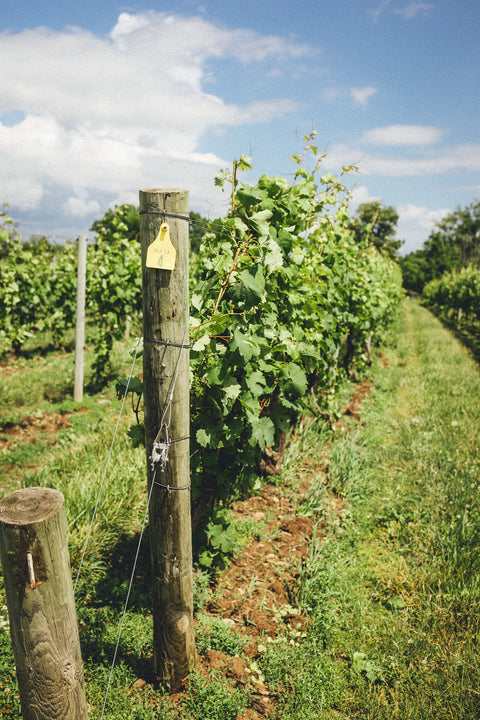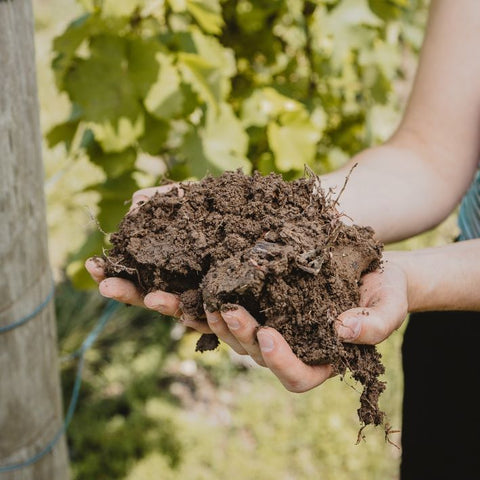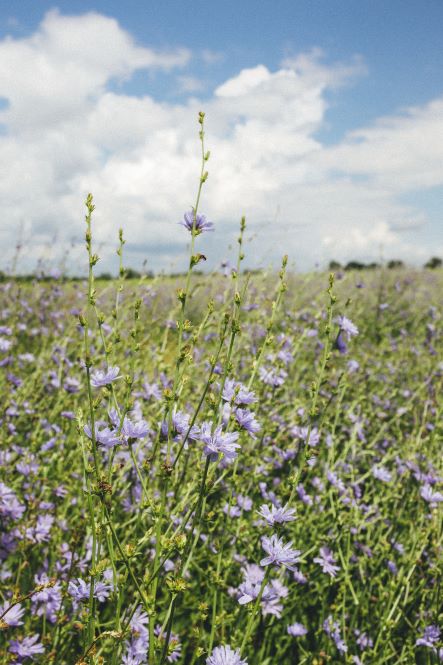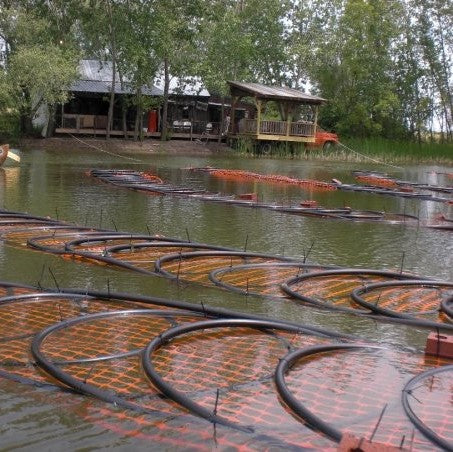Sustainability
We are proud to be one of the first New York State wineries to be certified by the New York Wine and Grape Foundation as a sustainable vineyard. Vineyard sustainability evaluations are based on 144 action items addressing input reduction, soil health, water protection, resources and waste, energy conservation, ecosystem health, climate resiliency, continuous improvement, and social equity. All of the wines served in Stony Lonesome (our traditional tasting room on the estate) are certified sustainable.We do several things focused on sustainability in our vineyard.

Cover Crops
We plant under-row cover crops where applicable to reduce runoff, erosion, and leachate. We plant buckwheat in blocks where vigor can be maintained and blue chicory where vigor needs to be reduced. Cover crops reduce erosion, reduce the amount of leachate that exits a vineyard in runoff, and provide a habitat for beneficial predatory insects.
Compost
Mow specific blocks for aesthetic purposes. Everything else is mowed only when laborers need to go in, or when the centers reach the height of the fruit wires. This not only reduces fuel consumption, but also provides a better mulching effect than mowing short grass. Compost grape stems and skins from harvest, coffee grounds and food scraps from our cafe, and spent grain from War Horse Brewing production.
Blue Chicory
Spring 2023 we planted blue chicory on the front acre by Lerch Road. The chicory flower's deep taproot helps it to break through layers of compaction and aid drainage. We mow it down after bloom to use as a green compost, then plant a cover crop or ground cover blend. Doing this every year provides a pollinator habitat and reduces our fuel consumption from mowing.Spring '24 Cover Crops
Wild turnips were planted in the field next to our entrance to alleviate compaction in the soil. We rotate cover crops in this field to rehabilitate the soil and create habitat with the idea that we will plant grapes there one day. Over the summer the turnips will be cultivated (tilled into the ground) and replaced with Crimson clover. Clover is a legume, a nitrogen fixing plant, which means it will add nitrogen back into the soil.
Geothermal Heating and Cooling
In 2009 we installed two geothermal systems in the Bagg Dare pond to heat and cool our warehouses. A pond-source geothermal system consists of a series of pipes filled with heat-transfer fluid that are submerged in the pond. The pipes are connected to an indoor geothermal heat pump, which uses the pond water as a heat source or heat sink. In the winter, the heat-transfer fluid in the pipes absorbs heat from the warm pond water. The heat is then transferred to the indoor heat pump, which uses it to heat the warehouse. In the summer, the process is reversed. The heat-transfer fluid in the pipes absorbs heat from the warehouse, which is then transferred to the pond water.
Ontario County Can Carrier Collection Program
War Horse Brewing Co. is excited to be the 21st brewery to join the Ontario County Can Carrier Collection Program!
How does it work? You return can carriers to our bin as seen in the photo, and carriers are collected to be washed and reused by local breweries. When can carriers are separated, damaged carriers that are unable to be reused can be transported to the MRF to be recycled. Less plastic ends up in the waste stream or environment.
Despite the labeling, plastic can carrier handles can’t be recycled with your household recycling. But you can do your part to keep these handles out of landfills and clogging recycling streams by bringing them in next time you’re around.
Visit OntarioCountyRecycles.org for more details and to find a collection point near you.
Finger Lakes Craft Beverage Environmental Coalition
In 2024 Three Brothers Wineries and Estates filled a 20-yard roll off with 11,000 empty wine bottles. These bottles will be processed into cullet (recycled broken or waste glass used in glassmaking) and sold to bottle and fiberglass manufactures. Most importantly, this valuable material will be diverted from the landfills thus bringing us closer to a more sustainable circular economy.
Wineries interested in adopting a roll off (consider sharing with a neighboring winery), CBEC can provide financial assistance to cover the hauling which ranges from $300-$500 per swap, no rental fees apply to this program. Please reach out to Vinny Aliperti at vinny@billsborowinery.com if you have additional questions. If your ready to sign up, contact Ryan Hamilton at ryan.hamilton@tomra.com to schedule a drop off.
Learn More @ FLX Craft Beverage Environmental Coalition






